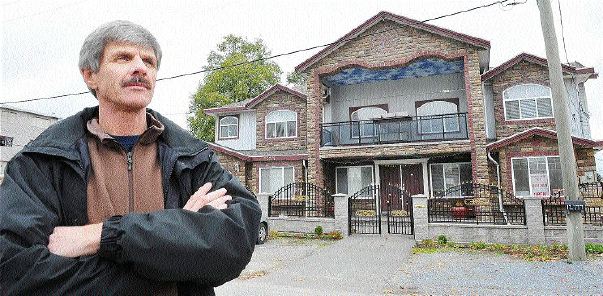Brian Morton
Sun
A tight housing resale market is good news for B.C.’s new residential construction sector in 2010, according to a report released Monday by the Canada Mortgage and Housing Corporation.
“In terms of the resale market, conditions have improved in the second half of 2009 and they’ll continue to be strong in 2010,” Carol Frketich, CMHC’s regional economist for B.C., said in an interview. “In 2010, a pick-up in home sales, a stronger domestic economy with income growth and low mortgage rates will lead to an increase in new home construction.
“Greater Vancouver tends to lead the other markets and that’s what we’re now seeing. In 2010, it will spread to the rest of the province. This will prompt builders to start more homes to meet a growing need for housing.”
According to CMHC’s Housing Market Outlook Report, total housing starts in B.C. next year will be about 23,400, which represents an increase of about 54 per cent from the projected 2009 total of 15,200 — itself a 56-per-cent decline from 2008’s 34,321.
However, Frketich also said their projected numbers for B.C. starts in 2010 could rise as high as 26,800 or fall to 20,200 if economic circumstances change.
The report by Canada’s national housing agency said the rebound in both single-detached and multi-family housing starts will bring the level of residential construction closer to, but still below, the 10-year average.
Frketich said the peak was 2007 when there were 39,195 starts. She said starts will rise to about 31,700 in 2013.
Frketich also said the average existing price for all homes will increase modestly in 2010 to $460,000, a 1.8-per-cent rise from this year’s projected $452,000.
“Prices [this year] will be very similar to the annual level of 2008 [$454,499], because the second half of the year has been stronger.”
She said Alberta and B.C. will see more of a rebound in construction next year than the rest of Canada, in part because “we had a bigger slowdown.”
The report, which noted that the recovery of the province’s export sector will be tempered by a high Canadian dollar, also forecast increased renovation activity next year.
CMHC is also forecasting that population growth through migration will help provide support for home ownership demand through 2010.
Nationally, the CMHC report forecasts that housing starts will reach 141,900 in 2009 and rise to 164,900 next year, numbers that are far below 2008’s final tally of 211,056.
Listed home resales are expected to reach 441,300 units this year and 445,150 units in 2010, CMHC added.
© Copyright (c) The Vancouver Sun


